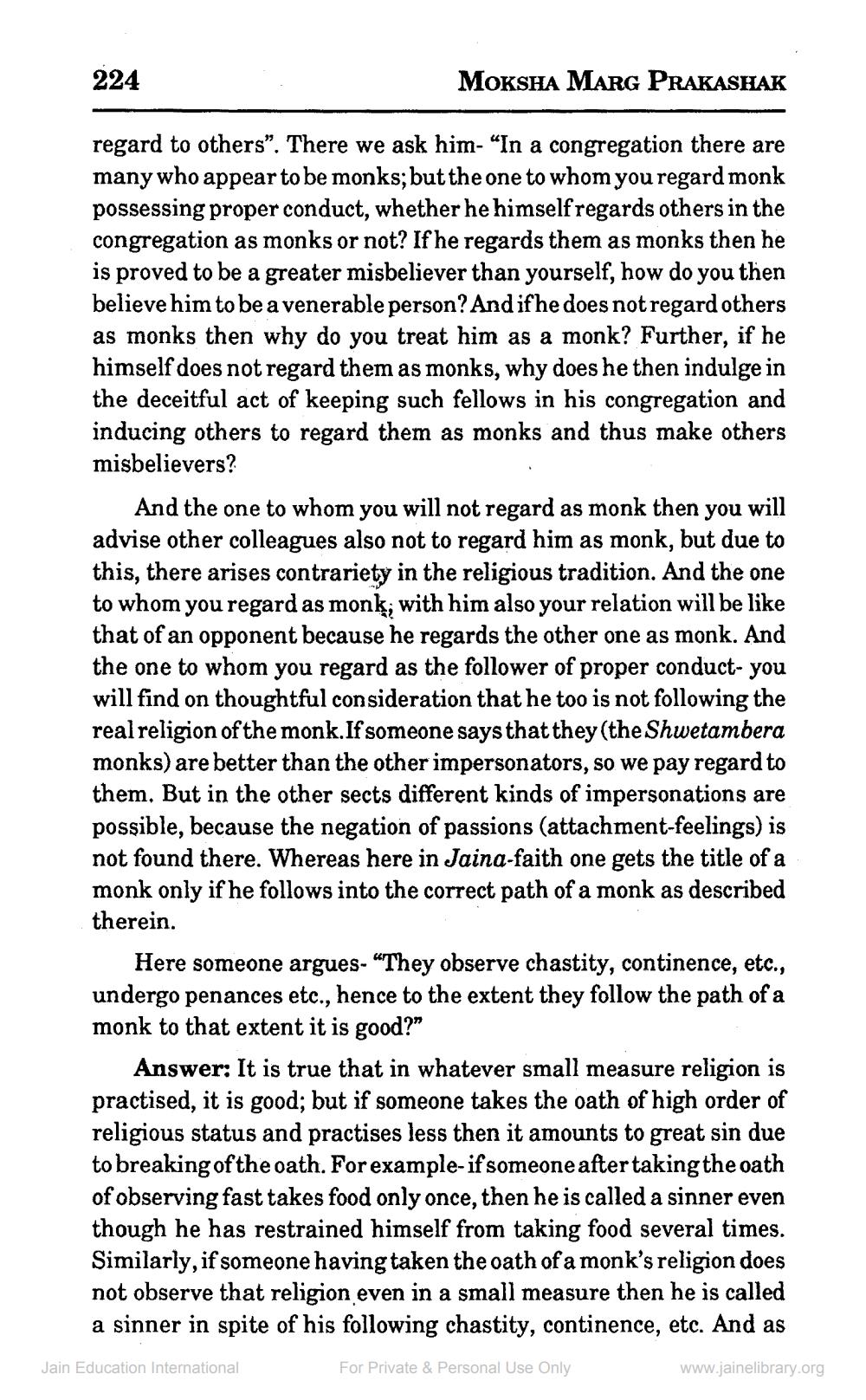________________
224
MOKSHA MARG PRAKASHAK
regard to others”. There we ask him- "In a congregation there are many who appear to be monks; but the one to whom you regard monk possessing proper conduct, whether he himself regards others in the congregation as monks or not? If he regards them as monks then he is proved to be a greater misbeliever than yourself, how do you then believe him to be a venerable person? And if he does not regard others as monks then why do you treat him as a monk? Further, if he himself does not regard them as monks, why does he then indulge in the deceitful act of keeping such fellows in his congregation and inducing others to regard them as monks and thus make others misbelievers?
And the one to whom you will not regard as monk then you will advise other colleagues also not to regard him as monk, but due to this, there arises contrariety in the religious tradition. And the one to whom you regard as monk; with him also your relation will be like that of an opponent because he regards the other one as monk. And the one to whom you regard as the follower of proper conduct- you will find on thoughtful consideration that he too is not following the real religion of the monk.If someone says that they (the Shwetambera monks) are better than the other impersonators, so we pay regard to them. But in the other sects different kinds of impersonations are possible, because the negation of passions (attachment-feelings) is not found there. Whereas here in Jaina-faith one gets the title of a monk only if he follows into the correct path of a monk as described therein.
Here someone argues- "They observe chastity, continence, etc., undergo penances etc., hence to the extent they follow the path of a monk to that extent it is good?"
Answer: It is true that in whatever small measure religion is practised, it is good; but if someone takes the oath of high order of religious status and practises less then it amounts to great sin due to breaking of the oath. For example if someone after taking the oath of observing fast takes food only once, then he is called a sinner even though he has restrained himself from taking food several times. Similarly, if someone having taken the oath of a monk's religion does not observe that religion even in a small measure then he is called a sinner in spite of his following chastity, continence, etc. And as
Jain Education International
For Private & Personal Use Only
www.jainelibrary.org




